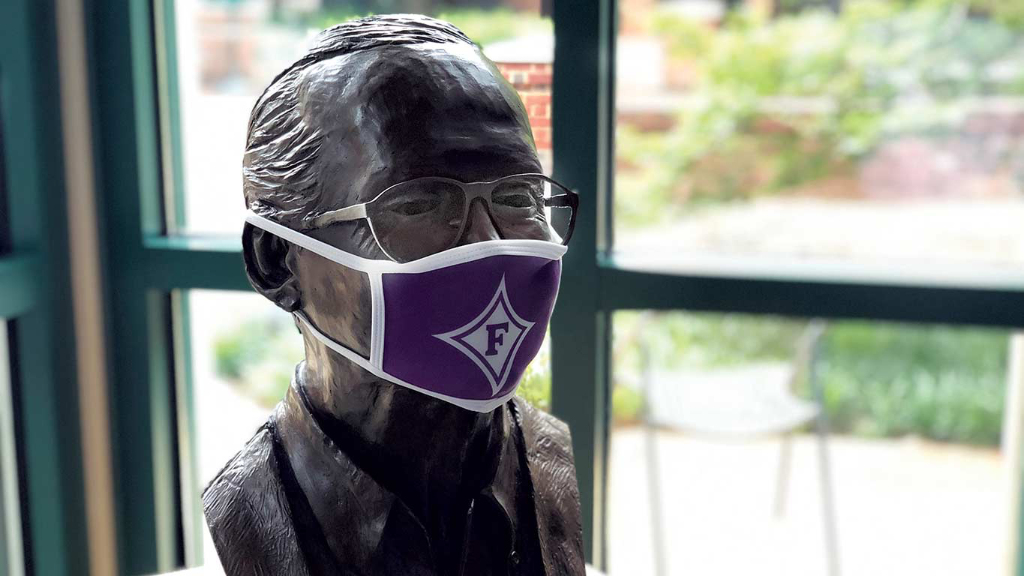As COVID-19 continues to spread, one key aspect of Furman’s reopening plan—the decision not to require negative tests for students returning to campus—puts us at a disadvantage. To be fair, much of the blame for this decision falls on the CDC. By explicitly not recommending entry testing, they offered colleges an excuse to not do something that they really should be doing. Mandatory entry testing would proactively limit the number of asymptomatic cases on campus. Dr. Anthony Fauci and a host of other public health professionals have endorsed the proposal, and it is being implemented at several of our peer institutions, including Wake Forest and Samford. Why did Furman choose to forgo this opportunity?
The rationale laid out on the Furman Focused website, which draws from the CDC guidelines, does not stand up to scrutiny. One common refrain is that mandatory entry testing “promotes a false sense of security.” For that matter, any of the preventive measures we have become accustomed to, including mask wearing, social distancing, and hand washing, could also be said to promote a false sense of security. The issue is in the messaging, not the science.
The CDC guidelines also state that entry testing “has not been systematically studied.” While true, this statement is misleading. As University of Washington biologist Carl T. Bergstrom writes for the Chronicle of Higher Education, “we have never had students return to college amidst a COVID-19 pandemic, so we have no direct experience with the effects of testing in that specific scenario. But we know exactly what to expect. We have overwhelming evidence from numerous other settings that testing is effective above and beyond other measures at identifying infected individuals, and that by isolating such individuals we can reduce the spread of disease.” The point of testing is to help medical professionals and institutions like Furman make the best possible decisions for their communities. Without test results, those decision-makers are significantly handicapped.
Along these lines, perhaps the most compelling argument against entry testing is that test results are often delayed past the point where they are useful, and that our knowledge is therefore limited to “a single outcome at a single point in time.” While this is certainly a real obstacle, it should spur us to creative solutions, not resigned defeatism. Polymerase chain reaction (PCR) tests, which have to wait in line to be processed in external labs, are not the only tests available. A variety of rapid antigen tests have been developed which have only a slightly higher false negative rate than the PCR tests but return results within minutes, such that the lower sensitivity is more than compensated for by the quicker results. These tests are especially useful for managing spread because they look at infectiousness rather than just infections. False negatives will be highly unlikely to infect other people: if you test negative despite actually being infected with the virus, your “viral load”—the amount of virus in your body—would be so small as to not matter.
Although it is too late for entry testing, at least for freshmen and seniors, Furman could still establish itself as a regional and national leader in COVID safety by implementing a regular testing program. A recent article in the Journal of the American Medical Association suggests that testing every student on campus at least once a week using a rapid test could keep COVID under control, assuming that preventive behavioral interventions were also strictly followed. Even better, all this could be accomplished at a cost of approximately $120 per student per semester. Testing symptomatic people alone will not be enough. To get through a semester on campus, Furman will have to test—a lot.
































